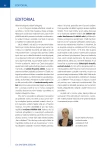ROBOT ASSISTED PERFORMANCES IN ANDROLOGY
Authors:
Milan Čermák 1; Jiří Kočárek 1,2; Jiří Heráček 1,2
Authors‘ workplace:
Urologické oddělení, Ústřední vojenská nemocnice – Vojenská fakultní nemocnice Praha
1; Urologická klinika, 1. lékařská fakulta, Univerzita Karlova v Praze
2
Published in:
Ces Urol 2016; 20(2): 104-112
Category:
Review article
Overview
In four years, it will be exactly 100 years since Karel Čapek used the word ‘robot’ in his famous drama, R.U.R. for the first time. In this period of time this bare abstrakt idea became widely used in various industries. We consider 1999 as a milestone for using a robot in human medicine, when the first robot-assisted operation was performed using daVinci system by the American company, Intuitive Surgical. The first robot-assisted surgery in Urology, a radical prostatectomy, was compleated in 2000. The undisputed advantages of the robotic platform are elimination of the operator’s hand tremor, better stability, seven degree of free instrument movement, multi-screen visualization – projection up to three images simultaneously, high-resolution image, enlargement of the operating field and posibility of manipulation with three surgical instruments and the camera all at once. These benefits made the inclusion of robot-assisted surgery into microsurgery inevitable and the robotic platform is considered to be as a suitable replacement for the operating microscope, which enabled this department to being formed after 1970. This review article summarizes the basic robot-assisted operations in andrological microsurgery, concretely a vasovasostomy, vasoepididymostomy, targeted denervation of the spermatic cord, varicocelectomy and testicular sperm extraction.
Key words:
Chronic orchialgia, robotic assisted surgery, vasectomy reversal, vasoepididymostomy, vasovasostomy.
Sources
1. Dohle GR, Diemer T, Kopa Z, et al. European association of urology guidelines on vasectomy. Eur Urol 2012; 61 : 159–163.
2. O‘Conor VJ. Anastomosis of vas deferens after purposeful division for sterility. JAMA 1948; 136(3): 162–163.
3. Silber SJ, Grotjan HE. Microscopic vasectomy reversal 30 years later: a summary of 4010 cases by the same surgeon. J Androl 2004; 25(6): 845–859.
4. Kuang W, Shin PR, Matin S, Thomas AJJ. Initial evaluation of robotic technology for microsurgical vasovasostomy. J Urol 171(1): 300–303.
5. Schiff J, Li PS, Goldstein M. Robotic microsurgical vasovasostomy and vasoepididymostomy: a prospective randomized study in a rat model. J Urol 2004; 171(4): 1720–1725.
6. Fleming C. Robot-assisted vasovasostomy. Urol Clin North Am 2004; 31(4): 769–772.
7. Parekattil SJ, Gudeloglu A, Brahmbhatt J, Wharton J, Priola KB. Robotic assisted versus pure microsurgical vasectomy reversal: technique and prospective database control trial. J Reconstr Microsurg 2012; 28(07): 435–444.
8. Parekattil SJ, Gudeloglu A. Robotic assisted andrological surgery. Asian J Androl. 2013; 15(1): 67–74.
9. Strom KH, Levine LA. Microsurgical denervation of the spermatic cord for chronic orchialgia: long-term results from a single center. J Urol 2008; 180(3): 949–953.
10. Thacker MA, Clark AK, Marchand F, McMahon SB. Pathophysiology of peripheral neuropathic pain: immune cells and molecules. Anesth Analg 2007; 105(3): 838–847.
11. Parekattil SJ, Priola K, Atalah HN, Cohen MS, Allan RW. Anatomic basis for denervation of the spermatic cord for chronic orchialgia: trifecta of pain. Fertil Steril 2010; 94(4): S129–S30.
12. Schauer I, Madersbacher S, Jost R, Hübner WA, Imhof M. The impact of varicocelectomy on sperm parameters: a meta-analysis. J Urol 2012; 187(5): 1540–1547.
13. Shu T, Taghechian S, Wang R. Initial experience with robot-assisted varicocelectomy. Asian J Androl 2008; 10(1): 146.
14. Schlegel PN. Testicular sperm extraction: microdissection improves sperm yield with minimal tissue excision. Hum Reprod 1999; 14(1): 131–135.
15. Najari BB, Ramasamy R, Sterling J, et al. Pilot study of the correlation of multiphoton tomography of ex vivo human testis with histology. J Urol 2012; 188(2): 538–543.
Labels
Paediatric urologist Nephrology UrologyArticle was published in
Czech Urology

2016 Issue 2
-
All articles in this issue
- LAPAROSCOPIC URETERAL REIMPLANTATION – VIDEO
- LAPAROSCOPIC RADICAL CYSTECTOMY – VIDEO 2015
- ROBOT ASSISTED PERFORMANCES IN ANDROLOGY
- NEPHROBLASTOMA – CURRENT EVALUATION AND TREATMENT
- ARTEFICIAL SOMATO-CNS-AUTONOMIC MICTURITION REFLEX – EXPERIMENTAL VERIFICATION
- EARLY POSTOPERATIVE COMPLICATIONS AFTER RADICAL CYSTECTOMY WITH ORTHOTOPIC BLADDER SUBSTITUTION
- APLICATION OF DETOUR EXTRA-ANATOMIC STENT AFTER DESINTEGRATION LEFT URETEROINTESTINAL ANASTOMOSIS
- THE CONSEQUENCES OF PENILE SUBCUTANEOUS APPLICATIONS OF THE FOREIGN MATERIALS
- PROFESSOR TOMÁŠ HANUŠ, M.D., DrSc., CELEBRATES HIS BIRTHDAY
- CONGRESS REPORT – 4TH CZECH VIDEO-TUTORIAL 2016
- THE 2ND UROLOGY-NEUROLOGY SYMPOSIUM IN OSTRAVA
- A REPORT FROM THE 37TH WORKING DAYS OF PAEDIATRIC NEPHROLOGY AND THE 27TH ANNUAL MEETING OF PAEDIATRIC UROLOGISTS
- KNOU 2016 – COMPREHENSIVE NEWS IN ONCOLOGICAL UROLOGY
- PROF. MICHAL HORŇÁK, M.D., DRSC. A LEADING SLOVAK UROLOGIST, PASSED AWAY
- KEY UROLOGICAL SURGICAL PROCEDURES IN THE CZECH REPUBLIC IN PERIOD 2009–2014
- BLACK ADENOMA OF THE ADRENAL GLAND
- Czech Urology
- Journal archive
- Current issue
- About the journal
Most read in this issue
- THE CONSEQUENCES OF PENILE SUBCUTANEOUS APPLICATIONS OF THE FOREIGN MATERIALS
- NEPHROBLASTOMA – CURRENT EVALUATION AND TREATMENT
- BLACK ADENOMA OF THE ADRENAL GLAND
- KEY UROLOGICAL SURGICAL PROCEDURES IN THE CZECH REPUBLIC IN PERIOD 2009–2014
